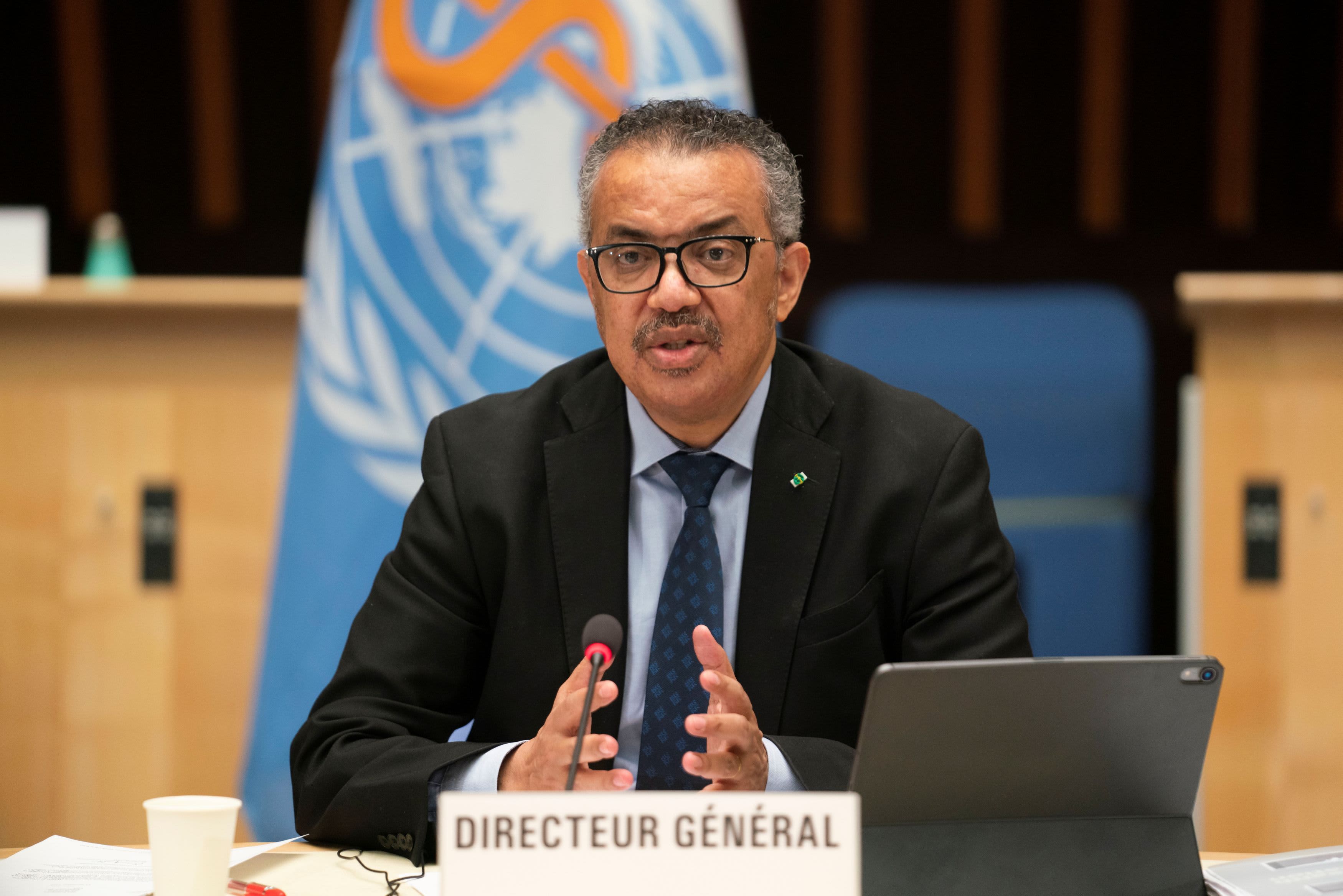Tedros Adhanom Ghebreyesus, Director General of the World Health Organization (WHO) speaks after Dr. Anthony Fauci, director of the National Institute of Allergy and Infectious Diseases, during the 148th session of the Executive Council on the coronavirus outbreak (COVID-19) in Geneva, Switzerland, January 21, 2021.
Christopher Black | WHO | via Reuters
The World Health Organization said on Friday that it is reviewing recent reports of blood clots in some people who received the AstraZeneca Covid-19 vaccine, which has led some countries to suspend distribution of the vaccines.
At least nine countries, including Denmark, Norway, Iceland and Thailand, have suspended the use of the vaccine for safety reasons. As of Wednesday, around 5 million people in Europe had received the Oxford-AstraZeneca vaccine. Of that number, 30 so-called thromboembolic events have been reported in recipients. These are blood clots that form in blood vessels and block blood flow.
AstraZeneca said in a statement on Friday that “there is no evidence” that the vaccine causes an increased risk of developing blood clots.
WHO Director-General Tedros Adhanom Ghebreyesus said on Friday that the agency’s Global Vaccine Safety Advisory Committee “systematically reviews safety signs and is carefully evaluating current reports on the AstraZeneca vaccine.”
“As soon as WHO has fully understood these events,” he added, “the findings and any changes to our current recommendations will be immediately communicated to the public.”
Dr Mariangela Simão, WHO assistant director-general for access to medicines and health products, added that the global health agency “is likely to make a statement next week when the investigations are completed.”
“WHO is very much in line with the position that we should continue immunization until we have clarified the causal relationship,” she said.
Dr Soumya Swaminathan, WHO’s chief scientist, said it is still unclear whether the vaccine is actually causing blood clots. An AstraZeneca spokesman noted that “the observed number of these types of events is significantly less in vaccinees than would be expected among the general population”.
“Adverse events reported after vaccination should be viewed in the context of events that occur naturally in the population,” said Swaminathan. “Just because it is reported after vaccination, it does not mean that it is because of vaccination. It may not be entirely related.”
Europe’s drug regulator, the European Medicines Agency, emphasized that there is no indication that the AstraZeneca injection is causing blood clots, adding that he believes the vaccine’s benefits “continue to outweigh its risks”.
“Blood clot reports received so far are no greater than the number that would have occurred naturally in the vaccinated population,” said Dr. Phil Bryan, vaccine safety leader at the UK’s Medicines and Health Products Regulatory Agency.
“Public safety will always come first. We are keeping this subject under review, but the available evidence does not confirm that the vaccine is the cause. People should still get their COVID-19 vaccine when asked to do so.” he added.
– CNBC’s Sam Meredith contributed to this report.
